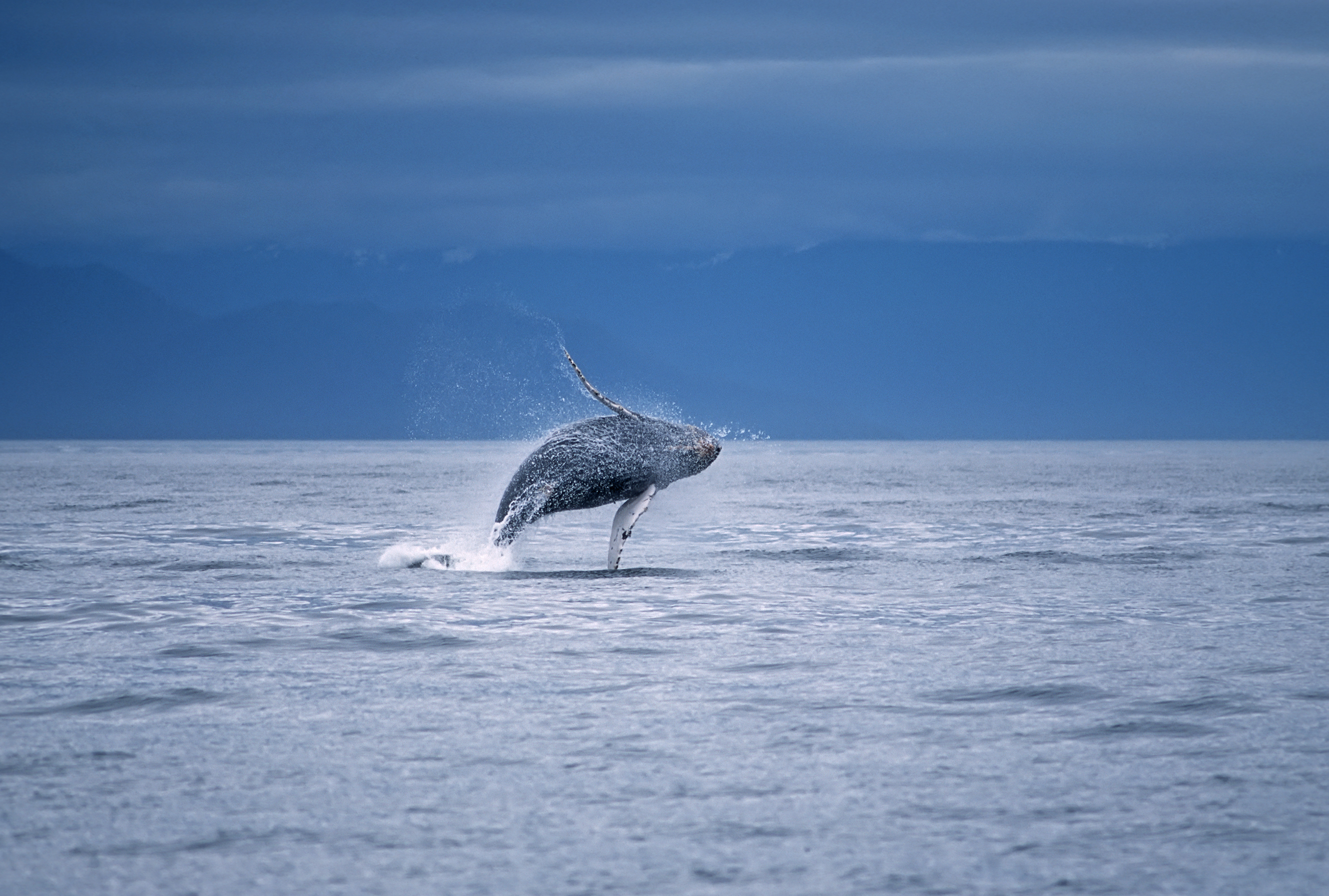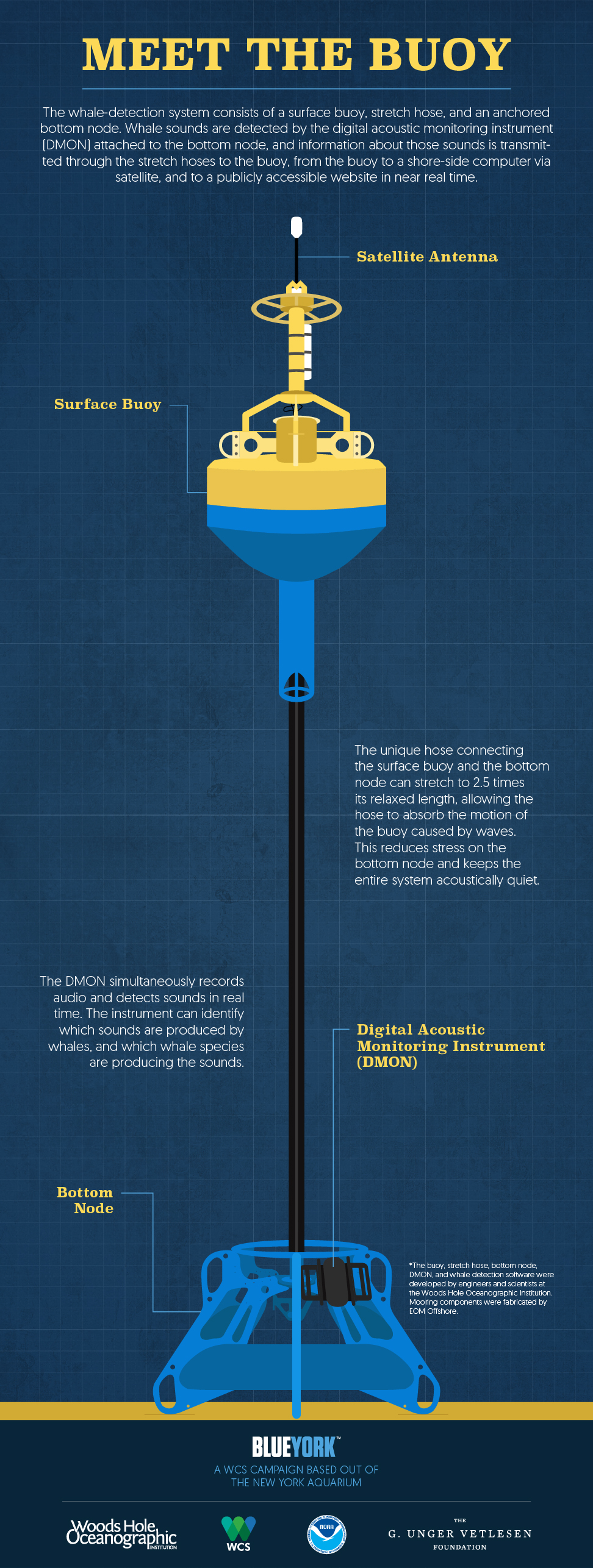How scientists are saving whales by listening to the ocean
Move over, whale watchers. Melville has arrived.


A free daily email with the biggest news stories of the day – and the best features from TheWeek.com
You are now subscribed
Your newsletter sign-up was successful
Recently, New Yorkers were surprised and charmed by the sight of a vagabond whale taking what seemed to be an inter-borough tour of Manhattan's waterways. But for scientists, it's no surprise that there are whales in the waters that surround New York. It turns out that the New York Bight, an area of water that runs from Montauk to just south of Atlantic City, is full of whales — and researchers have a new way of detecting the rarest of these beautiful behemoths.
Meet Melville, an acoustic buoy located 22 mile south of Fire Island. Melville is the most sophisticated buoy of its kind. "We're kind of on the bleeding edge of real-time [whale] detection," says Mark Baumgartner of the Woods Hole Oceanographic Institution, which developed the software for Melville.
On the surface, Melville looks like a standard buoy with an antenna. But beneath the water, it's connected to a digital acoustic monitoring instrument that both records audio and detects sounds in real time. Every two hours, the buoy transmits information about the sounds it's picking up on to a satellite, which then transmits the data to Baumgartner's lab in Massachusetts. There, a software program compares the sounds to a library of whale calls and sends the data to both a public website, and a researcher for analysis.
The Week
Escape your echo chamber. Get the facts behind the news, plus analysis from multiple perspectives.

Sign up for The Week's Free Newsletters
From our morning news briefing to a weekly Good News Newsletter, get the best of The Week delivered directly to your inbox.
From our morning news briefing to a weekly Good News Newsletter, get the best of The Week delivered directly to your inbox.

Since the buoy was installed on June 23, it has recognized scores of calls from fin whales, which can be detected from up to 10 miles away. But Melville's most exciting discoveries come from much rarer whale species, including the North Atlantic right whale, one of the world's most threatened species.
"There are 500 or less in the entire species," says Howard Rosenbaum, who directs the Wildlife Conservation Society's Ocean Giants Program. These giants weigh up to 79 tons and can stretch up to 50 feet. They love shallow, coastal waters like the New York Bight. And while they have been protected from commercial fishing for decades, their slow speeds make them particularly prone to collisions with ships.
On Oct. 31, Melville also detected another unexpected sound: a call from a sei whale. Though the species is present in most oceans, it's unusual to find one in New York waters.

Helping provide safe passage for these creatures isn't the buoy's only purpose. "It will give us a treasure trove of information," says Rosenbaum. "The Bight is one of the busiest waterways, and yet we're still learning quite a bit about the wildlife in our own backyard."
A free daily email with the biggest news stories of the day – and the best features from TheWeek.com
Plus, old-fashioned means of monitoring whales are unreliable and expensive. "When you monitor acoustically, you're doing it 24/7 regardless of the weather conditions," Baumgartner says. "It's ridiculously inexpensive, comparatively." In other words, the days of chartering a plane, filling it with whale-watching researchers, and grappling with bad weather could be over.
Mariners in the Bight are already encouraged to reduce their speeds and use caution in shallow waters. But Rosenbaum says now that Melville has confirmed the presence of rare whale species in the Bight, conservationists can begin to work with regulatory authorities and the shipping industry to go further in making sure whales don't get hit.
"Obviously no one wants to hit a whale," says Rosenbaum. Accidents do happen — but with the help of a next-generation sentinel eavesdropping on whales' calls, they'll hopefully happen less often.
Erin Blakemore is a journalist from Boulder, Colorado. Her work has appeared in The Washington Post, Time, Smithsonian.com, mental_floss, Popular Science and more.
-
 The environmental cost of GLP-1s
The environmental cost of GLP-1sThe explainer Producing the drugs is a dirty process
-
 Greenland’s capital becomes ground zero for the country’s diplomatic straits
Greenland’s capital becomes ground zero for the country’s diplomatic straitsIN THE SPOTLIGHT A flurry of new consular activity in Nuuk shows how important Greenland has become to Europeans’ anxiety about American imperialism
-
 ‘This is something that happens all too often’
‘This is something that happens all too often’Instant Opinion Opinion, comment and editorials of the day
